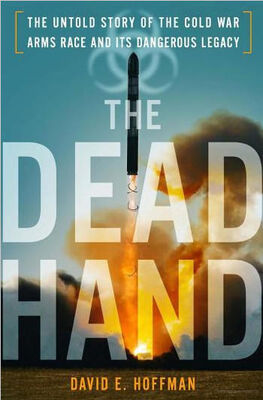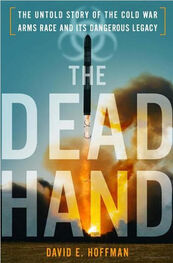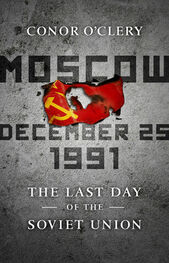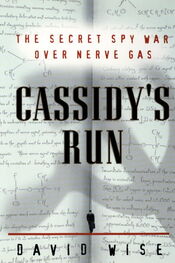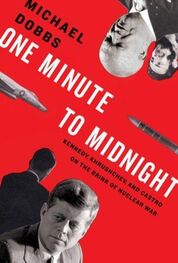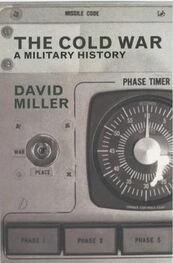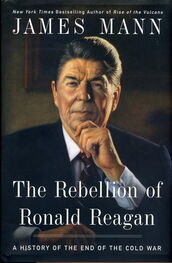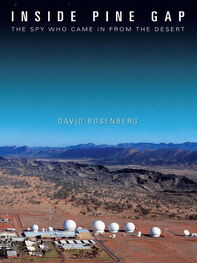Brezhnev wrote back to Reagan that the Eureka College proposal “cannot but cause apprehension and even doubts as to the seriousness of the intentions of the U.S. side.”
While reading Brezhnev’s letter, Reagan jotted down in the margin, “He has to be kidding.”
When Brezhnev complained that Reagan’s proposals were one-sided, cutting deeper into Soviet weapons than American ones, Reagan wrote, “Because they have the most.”
At the bottom of the letter, Reagan added, “He’s a barrel of laughs.” 34
———
Across the United States, the nuclear freeze movement gained ground in 1982, inspired by antinuclear protests in Western Europe. Churches, universities and city councils in the United States were organizing to protest the nuclear arms race. A march from the United Nations to New York’s Central Park on June 12 drew three-quarters of a million people. Jonathan Schell published The Fate of the Earth , a best seller which declared that nuclear weapons threatened human existence and called for their elimination. The American Catholic bishops drafted a Pastoral Letter on War and Peace expressing fear of the nuclear arms race. Reagan went to Europe in early June concerned that he was being depicted “as a shoot from the hip cowboy aching to pull out my nuclear six-shooter and bring on doomsday.” Reagan recalled later that “I wanted to demonstrate that I wasn’t flirting with doomsday.” But he also used the trip to advance his confrontation with Moscow. A few days before departure, he wrote in his diary that he was fed up with those who advised him to go easy on the Soviets, so as not to upset the allies. “I finally said to h–l with it. It’s time to tell them this is our chance to bring the Soviets into the real world and for them to take a stand with us—shut off credit, etc.” 35
One of the most secret but daring thrusts by Reagan came on June 7. He met Pope John Paul II for fifty minutes in the Vatican library. Both had survived assassination attempts the previous year. Their talk centered on Poland, the pope’s birthplace, where the Soviet-backed regime had imposed martial law and outlawed the Solidarity movement. The journalist Carl Bernstein reported in 1992 that Reagan and the pope agreed on a plan to support Solidarity underground, smuggling in tons of equipment, including fax machines, printing presses, transmitters, telephones, shortwave radios, video cameras, photocopiers, telex machines, computers and word processors. The goal was to destabilize General Wojciech Jaruzelski, a pointed and direct challenge to the Kremlin. 36The pope’s authorized biographer, George Weigel, recalled that both Reagan and John Paul “believed that Communism was a moral evil, not simply wrongheaded economics. They were both confident of the capacity of free people to meet the Communist challenge. Both were convinced that, in the contest with communism, victory, not mere accommodation, was possible.” Weigel recalled the pope later said the Vatican had maintained a distance from the U.S. covert campaign in Poland, but he confirms the close coordination on intelligence. Weigel quotes the pope saying that while Reagan decided the policy, “My position was that of a pastor, the Bishop of Rome, of one with responsibility for the Gospel, which certainly contains principles of the moral and social order and human rights… The Holy See’s position, even in regard to my homeland, was guided by moral principle.” 37
On the day after seeing the pope, Reagan traveled to London for an open declaration of his policy, delivered to the British Parliament. He spoke in the Royal Gallery of the House of Lords, calling for a “crusade for freedom.” His speech overflowed with optimism about the demise of totalitarianism and the triumph of individual endeavor over collectivism, and described anew his abhorrence of nuclear war. There was not much applause for these statements at the time. Britain was still fighting in the Falklands, which dominated the headlines, and the speech did not get the attention it deserved as one of the most important Reagan ever delivered.
The boldest part of the address was Reagan’s assertion that Soviet communism would expire. “It may not be easy to see,” Reagan declared, “but I believe we now live at a turning point.
In an ironic sense, Karl Marx was right. We are witnessing today a great revolutionary crisis—a crisis where the demands of the economic order are colliding directly with those of the political order. But the crisis is happening not in the free, non-Marxist West, but in the home of Marxism-Leninism, the Soviet Union.
It is the Soviet Union which runs against the tide of history by denying freedom and human dignity to its citizens. It is also in deep economic difficulty. The rate of growth in the Soviet gross national product has been steadily declining since the ’50s and is less than half of what it was then. The dimensions of this failure are astounding: a country which employs one fifth of its population in agriculture is unable to feed its own people… Overcentralized, with little or no incentives, year after year, the Soviet system pours its best resource into the making of instruments of destruction.
Reagan closed the address with a prediction that the “march of freedom and democracy” would “leave Marxism-Leninism on the ash-heap of history as it has left other tyrannies which stifle the freedom and muzzle the self-expression of the people.”
On a quick visit to Berlin two days later, Reagan drove to Checkpoint Charlie, the drab opening in the Berlin Wall. He stepped out of his limousine, surveying the thirteen-foot-high wall, stretching out in both directions, gray and pockmarked, East German guards looking back at him from their guardhouses. Of the wall, he said, “It’s as ugly as the idea behind it.” 38
On June 25, Reagan recruited George Shultz, the chairman of Bechtel, to be his new secretary of state, replacing Al Haig. Shultz had been in Europe and recalled thinking about the state of the world as he flew home for his first meeting with Reagan.
“Relations between the superpowers were not simply bad,” he recalled, “they were virtually non-existent.” 39
At the same time, Reed, the National Security Council official, was growing more worried about the lack of a serious plan for the president’s command and control in the event of a nuclear alert. No one wanted to advertise it, but while the United States was spending billions to modernize strategic weapons, the means to command these forces was, in the words of one official, “the weakest link in the chain.” 40Furthermore, Reagan did not want to fly away in a helicopter if America was threatened with nuclear war. “I want to sit here in the office,” he told Reed. Referring to Vice President Bush, the president added, “Getting into the helicopter is George’s job.”
On June 19, 1982, Reed got Reagan’s approval for a new effort. 41The result was a plan that, in the event of attack, would preserve the presidency as an institution, instead of the president himself. On September 14, Reagan signed a top-secret directive, titled “Enduring National Leadership.” 42Instead of running for the helicopter, the president would remain in the Oval Office, ready to make decisions, order retaliation or negotiate, while his potential successors would vanish to distant and safe locations. The overall effort was called “Continuity of Government,” and it became a massive secret government program. Reed said the plan was to give a designated successor “the world’s biggest laptop” from which he could continue to govern if the real president were killed. “You basically say, hmmm, things are getting dicey—vanish. The guy doesn’t go into the basement, he vanishes with a communications set, and a linkage to all the other arms of government so that he can be the president.” As Reed put it, “Our contribution was to survive the presidency, not the president.”
Читать дальше